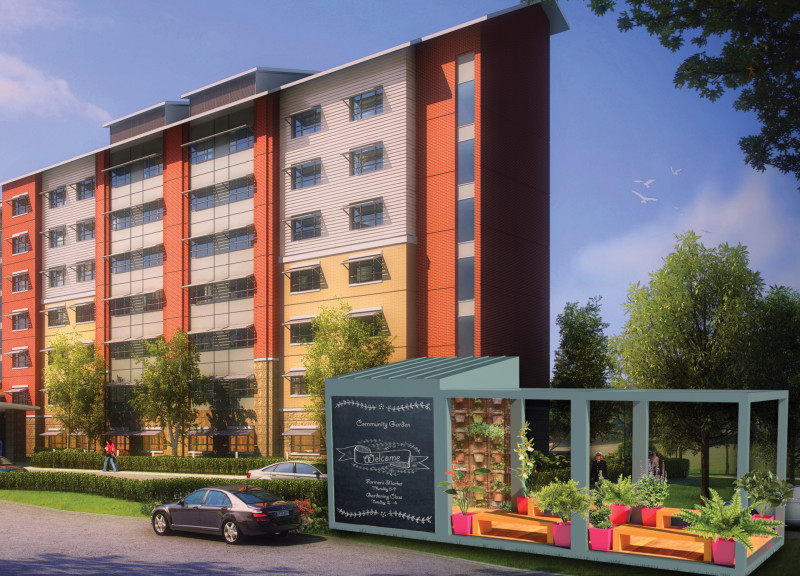5 key facts about this project
The architectural design project innovatively reimagines construction containers into adaptable, permanent structures. Located in various community settings, these facilities serve multiple purposes and integrate with their surroundings. The design centers around a construction container cube, allowing for a flexible approach that meets the varied needs of users through modular forms.
Design Concept
The project uses a basic cube shape to explore concepts like indoor versus outdoor spaces and the idea of stationary versus portable structures. This approach enhances user experience by creating environments that invite social interaction and encourage community engagement. Flexibility is key, as different functions can be accommodated within the same design framework.
Principal Forms
Three main forms emerge from the project: the First Aid (Humanitarian) Cube, the 72-hour Retreat Cube, and the Library/Wine & Bar Cube. Each form addresses specific user needs while contributing to an overall structure that balances functionality and engagement. The First Aid Cube serves as a mobile resource in emergencies, while the Retreat Cube promotes a relationship with nature, featuring large glass walls that blur the border between inside and out.
Material Selection
Material choices play a significant role in the project. Insulated metal panels and prefinished metal surfaces are prominently used. These materials offer durability and require low maintenance, aligning with goals for sustainability. They also enhance the visual consistency of the structures, ensuring that each variation remains functional and visually appealing in community settings.
Design Details
Modularity in the construction containers allows for easy transport and reconfiguration, making them adaptable to shifting community needs. Attention to detail can be seen in the interior design, with spaces crafted to encourage comfort and interaction. Varied seating arrangements and designated relaxation areas enhance the user experience. This thoughtful approach ensures that the facilities not only fulfill immediate needs but are also set to evolve within the community they serve.


























